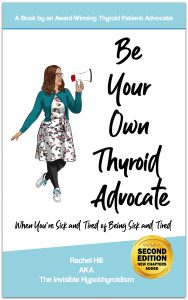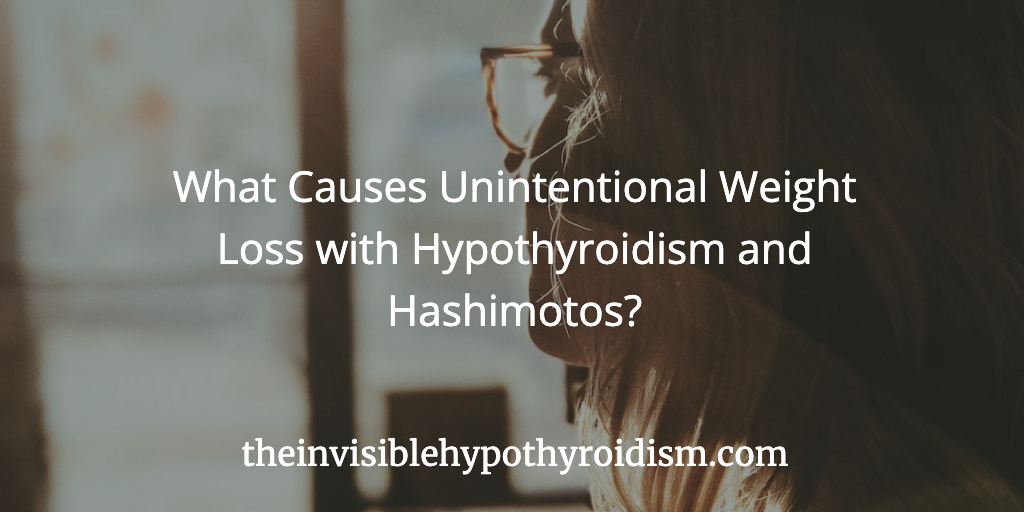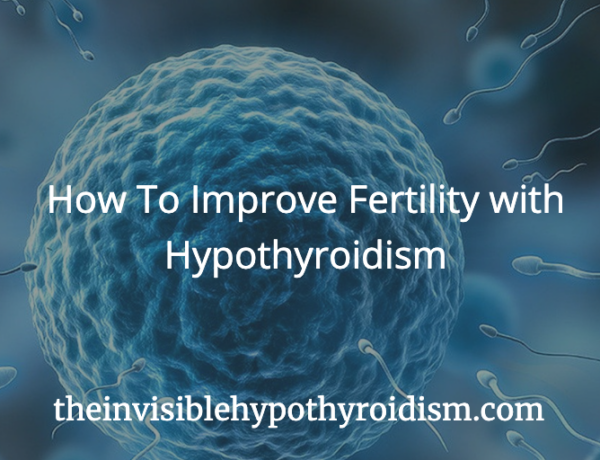Weight gain with hypothyroidism is commonly recognised and understood. However, I also hear from many thyroid patients who do not experience this and actually experience the opposite: unintentional weight loss.
Why does this happen?

How Weight Gain Occurs
Your thyroid produces the hormones T3 and T4. These hormones are needed for many processes, cells and functions in your body, so when they are abnormal, i.e. low, as is the case with hypothyroidism, a lot of processes can slow down.
The main purpose of thyroid hormone is to ensure the metabolism is running properly.
The metabolism’s job is to produce heat and fuel. Heat to keep us warm and fuel to give us energy. However, if we don’t have enough thyroid hormone, our metabolism won’t work properly and cannot provide us with adequate heat and fuel.
Therefore, people with hypothyroidism can have a slow metabolism, with symptoms such as cold intolerance (from the lack of heat made), extreme tiredness, and weight gain (from the lack of calories burned to make energy).
Why Weight Loss May Occur in Hypothyroidism or Hashimoto’s
Due to societal pressures and beauty standards, many people with hypothyroidism would love to have the problem of losing too much weight, however, there are risks associated with losing an excessive amount of weight and losing a lot of weight unintentionally can signal that something may be ‘wrong’.
Now that we know why most people experiencing hypothyroidism with weight changes experience weight gain, let’s look at why the minority may experience weight loss.
1. Overmedication / Hyperthyroidism
Unexplained weight loss could be due to overmedication from thyroid medication (thyroid hormone replacement), essentially sending the patient hyperthyroid. The opposite to hypothyroidism, hyperthyroidism is a speeding up of the metabolism, which can cause excessive weight loss.
If you are a thyroid patient experiencing unintentional weight loss, then it’s a good idea to have your thyroid levels checked. TSH, Free T3 and Free T4 should all be within range, and ideally optimised, but within normal limits still.
2. Adrenal Dysfunction
Low cortisol levels may correlate to unintentional weight loss.
The slope of cortisol, which we typically see at its highest first thing in the morning and gradually dropping down over the course of the day, can be disrupted when we are chronically stressed.
A 24-hour saliva test, testing your cortisol levels at four key points of the day, to find out if you have adrenal dysfunction, is recommended. If your doctor won’t run this, you can order it yourself and complete it at home, here.
3. A Reduced Appetite
Hypothyroidism can reduce your appetite, due to the metabolism slowing down and requiring less energy intake via food. Hypothyroidism can also make us feel fatigued, achey, generally unwell and low in mood, which can all impact how much of an appetite we really have, too.
When these cause us to eat less, we can of course experience weight loss.
Many thyroid patients feel too tired to cook meals or eat. One thyroid patient commented on a post of mine saying: “I lost weight rapidly before being diagnosed because I am responsible for making my own meals, and I was just too tired to cook! So I skipped meals and napped instead.”

4. Lowered Absorption
Some people with hypothyroidism and Hashimoto’s may not be absorbing food and nutrients properly, as poor gut health can also go hand in hand, and this may therefore lead to weight loss, too.
Look at this article for ways in which we can support our gut health, as well as improving low stomach acid and low vitamin or mineral levels.
5. Hashimoto Swings
Hashimoto’s can cause symptoms of both an over and under active thyroid, due to “swings”.
With Hashimoto’s, and especially when thyroid antibody levels continue to be high, the thyroid gland is being attacked and destroyed by the immune system. When this happens, thyroid hormone can be released in to the blood in waves, causing hyperthyroid ‘swings’.
You may see this on blood tests when your thyroid test results surprisingly swing in the opposite direction, before returning to their old levels or swinging back the other way again.
Lowering thyroid antibodies, also referred to as ‘putting Hashimoto’s in to remission’, can help to reduce these events.
It is also possible for someone to have both Hashimoto’s and Graves’ Disease. Though it is not possible to experience both at the same time, you can be diagnosed with both and switch between them.
Treatment for Graves’ (hyperthyroidism) and Hashimoto’s (hypothyroidism) is very different. The medications used to treat either high or low thyroid hormone levels do opposite things. Treatment is therefore usually based upon which you are experiencing at that time. For example, if you are hypothyroid, thyroid hormone replacement is given and if you’re hyperthyroid, antithyroid drugs are often given to block thyroid hormone.
Due to the nature of being diagnosed both Graves’ and Hashimoto’s at the same time meaning that you can fluctuate between the two states of thyroid disease, it’s not uncommon to have thyroid levels checked frequently to ensure that the correct treatment is still being given.
6. Diet Changes
Many thyroid patients make changes to their diet in a bid to see improved energy levels, less brain fog, constipation and overall, better health. Some of these changes may mean that our calorie intake reduces considerably. If you also suddenly increase your exercise amount in a bid to feel more energised for example, then this may lead to weight loss due to a change in calories burned, too.
If you suddenly adopt a big dietary change, such as an elimination diet, gluten-free diet, dairy-free diet, AIP or Keto diet, for example, then it may be causing a deficit in calories that you are not aware of, mainly because the types of food you’re eating have changed. I do not promote any one diet for all thyroid patients, as I prefer that we each assess which foods worsen symptoms for us or, conversely, help us to feel good, and in particular, I don’t recommend long-term massively restrictive diets. See more on this here.
7. Human Growth Hormone deficiency
An important possibility to cover for hypothyroid children losing weight in particular, is a Human Growth Hormone (HGH) deficiency. This condition usually needs to be explored by a paediatric endocrinologist.
Slow growth and slow weight gain can be common in children with hypothyroidism, though shouldn’t be an issue once thyroid hormone replacement is at the correct dose (optimised).
Other causes of unintentional weight loss in this article should also be considered for children.

8. Other Health Issues
It is always worth talking to your doctor about unintentional weight loss, in order to explore the above, but also rule out more serious conditions which can cause unexplained weight loss. For example: cancer, Crohn’s disease, ulcerative colitis, diabetes or coeliac disease (but there are many possibilities).
In particular, coeliac disease and diabetes commonly go hand in hand with hypothyroidism (especially autoimmune).
Conclusion
Never ignore unintentional weight loss, especially as it’s quite uncommon with hypothyroidism, which usually causes weight gain when levels are not right.
Feel free to add your experiences of this in the comments section below.

See also:
The book Be Your Own Thyroid Advocate: When You’re Sick and Tired of Being Sick and Tired, the must-read book for thyroid patients looking to get their health back on track.




